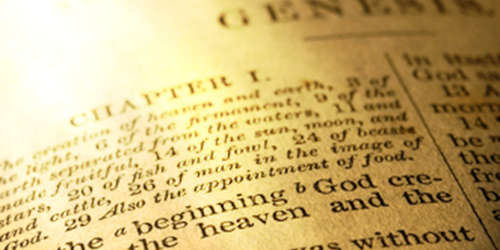Alice A. Bailey (AAB) in her Unfinished Autobiography wrote of the Old Testament that:
“I asked myself a few days ago what part of the Old Testament was worth preserving. Much of it is dreadful, cruel and only because the literature is found in the Bible does it pass the post-office regulations. I decided that the ten commandments must be preserved, one or two of the Bible stories such as the love of David and Jonathan, the 23rd Psalm and the 91st Psalm with a few others and about four chapters in the Book of Isaiah. All the rest was largely useless or undesirable, …” -The Unfinished Autobiography , CHAPTER III – Part 1
Symbolically she says the Old Testament stands for the “lower man”:
“The Old Testament stands for the natural lower man, the virgin Mary aspect, carrying within itself the promise of the Messiah, of Him Who shall come. The New Testament stands for the spiritual man, for God made flesh, and for the birth of that which the material nature carried and veiled for so long.” -From Bethlehem To Calvary , CHAPTER THREE – The Second Initiation . . . The Baptism in Jordan – Part 1
Love of Jehovah is taught with threats and immortality is not emphasized, per Alice A. Bailey:
“The word ‘love’ as it concerns relation to other people is lacking in their [Jews] religious presentation, though love of Jehovah is taught with due threats; the concept of a future life, dependent upon conduct and behaviour to others and on right action in the world of men, is almost entirely lacking in The Old Testament and teaching on immortality is nowhere emphasized; salvation is apparently dependent upon the keeping of numerous physical laws and rules related to physical cleanliness; …” -Problems Of Humanity , CHAPTER IV – THE PROBLEM OF THE RACIAL MINORITIES – Part 1
Personally I think she may be going a little overboard in these criticisms. In the days when the Jewish Tanakh (or written Torah) was coming into being just about all peoples were – by today’s standards – exceedingly cruel and materialistic. That people, at least in the civilized world, are much different in their views today is what we should properly call “evolution,” that is, spiritual evolution.
There are certainly enlightened passages in the Old Testament, for example
“And if a stranger sojourn with thee in your land, ye shall not vex him. But the stranger that dwelleth with you shall be unto you as one born among you, and thou shalt love him as thyself; for ye were strangers in the land of Egypt: I am the Lord your God.” -Leviticus 19:33-34
Are the Israelites depicted as cruel and violent in the Old Testament? Yes, of course, but that was the norm of the day and they were probably no crueler or more violent than the peoples around them, and in many way more advanced. They were trying to wean themselves off of idols, although that was a the time still very much a work in progress.
It might also be remembered that centuries after the Tanakh was closed (nothing new to be added) that the Romans were still forcing slaves to murder each other in gladiatorial games.
Continuing with AAB on the Old Testament she has some less than charitable things to say about the Jewish people:
“He [the Gentile] regards the Jew as a follower of an obsolete religion; he intensely dislikes the cruel and jealous Jehovah of the Jews and looks upon The Old Testament as the history of a cruel and aggressive people—apart from the Psalms of David, which all men love.” -Problems Of Humanity , CHAPTER IV – THE PROBLEM OF THE RACIAL MINORITIES – Part 1
There is quite a bit more that she writes about the Jews (see in quotes to follow). I think she in some ways represents the views of many Christians of her time, although it can be argued that her views are more complex and charitable than they might superficially appear.
Finally she wrote, and I think very accurately, that “The more ancient the Scripture, the greater, necessarily, the distortion” (see quote below)
Below are the mostly abbreviated quotes on the Old Testament I found in the writings of AAB. In many cases to really get the context you will need to click on the link to the Lucis Trust site:

